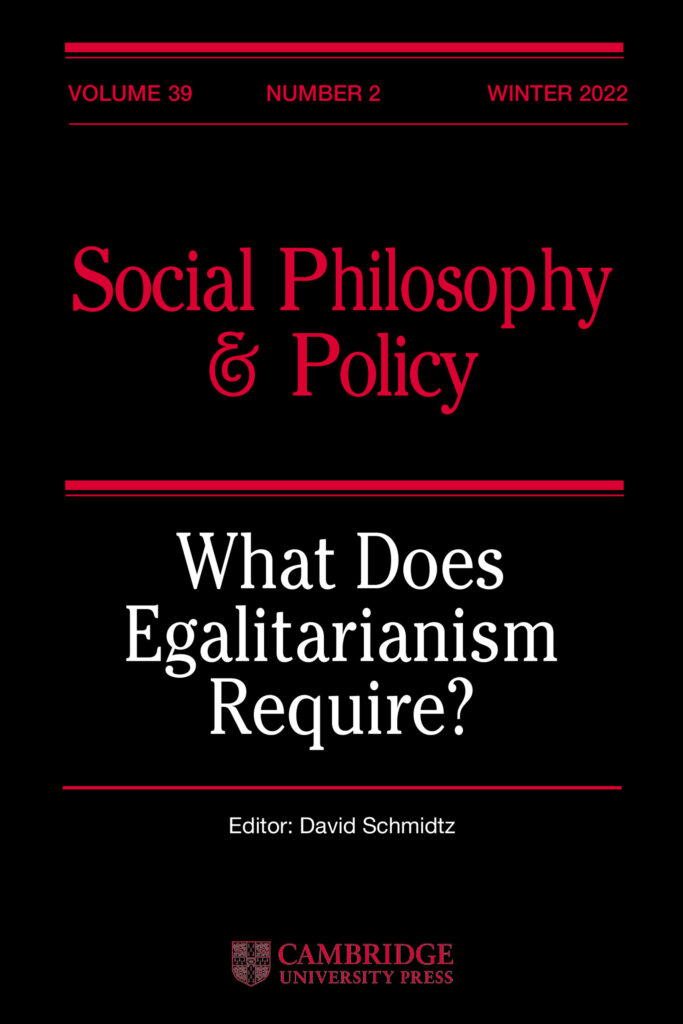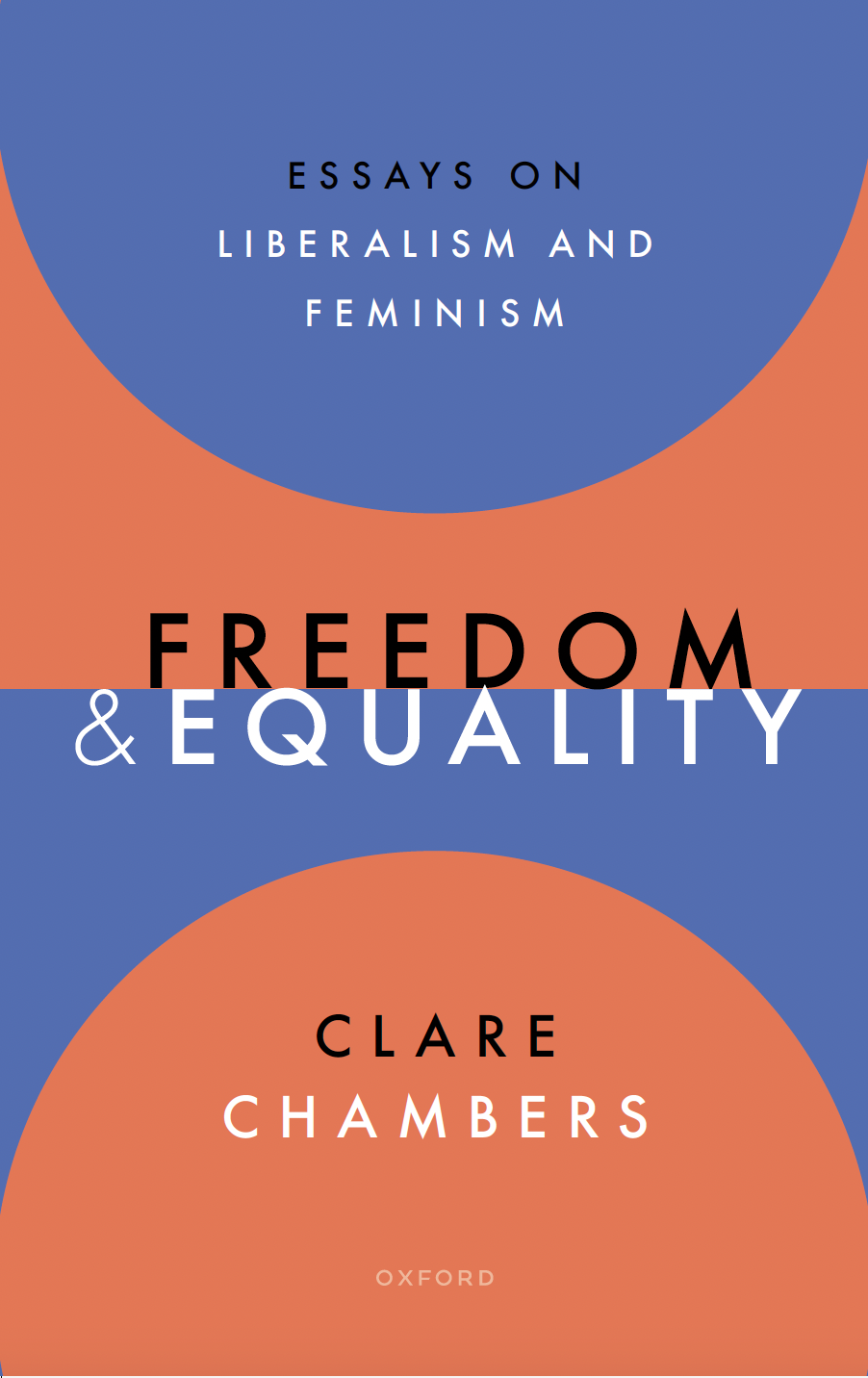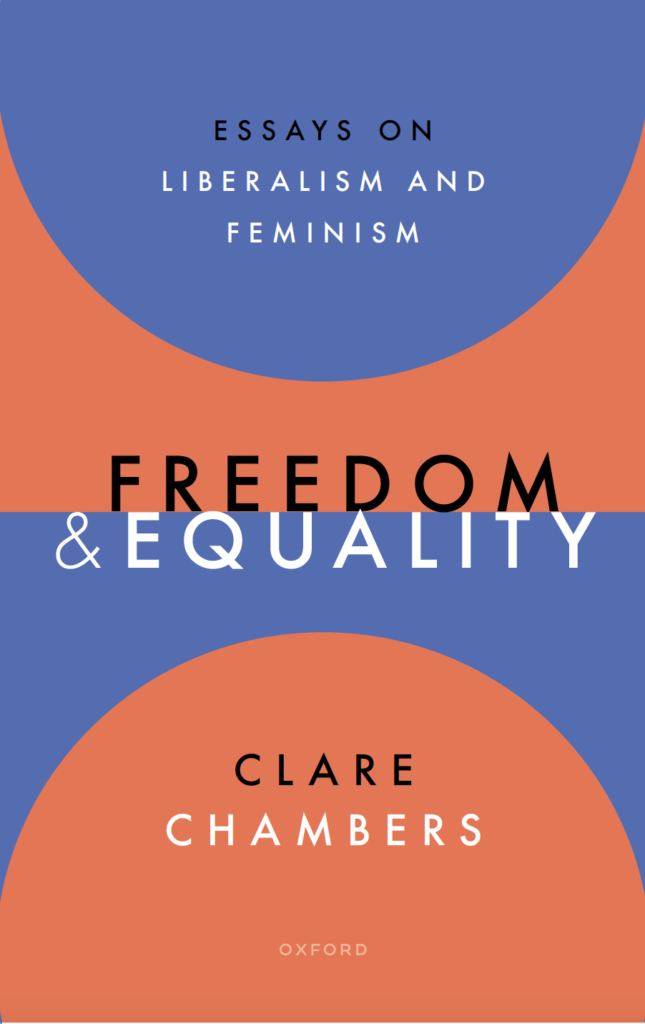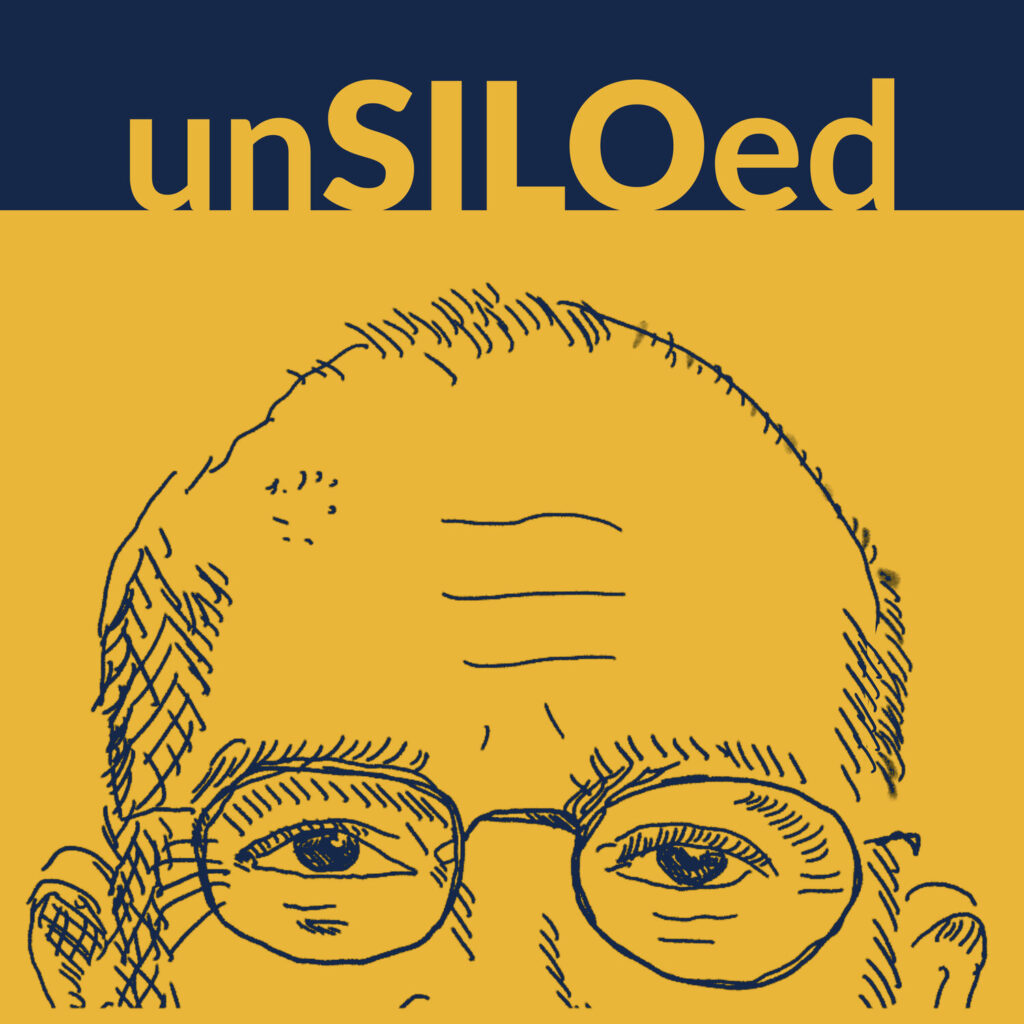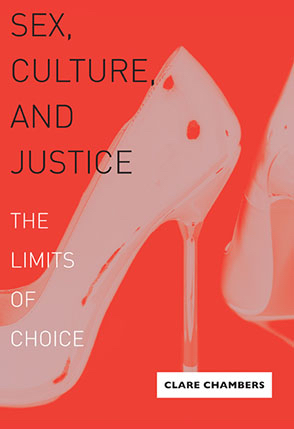all posts on social construction
- all posts on feminism, all posts on liberalism, all posts on social construction, feminism, liberalism
“Making Inequality Visible Without Making it Worse”
“Making Inequality Visible Without Making it Worse” is published in Social Philosophy & Policy (Vol. 39 No. 2, 2022). You can read it here.
Abstract: Egalitarian commitments have often been thought compatible with practices that are later identified as inegalitarian. Thus, a fundamental task of egalitarianism is to make inequality visible. Making inequality visible requires including marginalized people, questioning what equality requires, and naming inequality. At the same time, egalitarianism is a movement for change: egalitarians want to make things more equal. When egalitarians seek change at the institutional level, the two egalitarian tasks are complementary: making inequality visible is part of campaigning to make things better. However, at the level of social norms there is a dilemma because making inequality visible can make things worse. Making inequality visible can reinforce unequal norms and fail to address intersectionality. The case of gendered pronouns illustrates this dilemma.
- all posts on culture and religion, all posts on feminism, all posts on liberalism, all posts on marriage, all posts on social construction, Freedom & Equality
Freedom & Equality: Essays on Liberalism and Feminism
Should the state recognise gender? Can a liberal state discourage traditional family structures? Is women’s sport compatible with equality of opportunity? Should feminists defend women’s freedom to choose cosmetic surgery? Is genital cutting always wrong, or is it only wrong for girls?
Freedom & Equality: Essays on Liberalism and Feminism investigates the contours of feminist liberalism: a philosophical approach that is appealing but elusive. Its hallmark is a liberalism that prioritises equality and individual autonomy, while offering a rigorous critique of using individuals’ choices as the measure of justice. Liberalism without feminism prioritises individual choice, a strategy that has played a crucial role in the liberal defence of freedom against authoritarianism and conformity. However, as feminism shows, relying on individual choice is insufficient to render an outcome just, because people often choose things that harm or disadvantage themselves. From beauty norms to the gendered division of labour, from marriage to religion, women and men choose to arrange their lives in ways that perpetuate inequality. Often, these choices are made in response to social norms, including unjust, unequal, or harmful norms. It follows that relying on individual choice as a measure of justice actually leaves unjust social structures intact. Any defender of autonomy and equality must be prepared to criticise individuals’ choices while prioritising individual choosers.
The essays in this collection cover a wide range of issues fundamental to liberalism, to feminism, and to their intersection. They explore the foundational philosophical concepts of choice, equality of opportunity, ideology, and the state, and they engage directly with key political controversies, including women’s sport, the state recognition of gender, the regulation of cosmetic and cultural surgeries, and state action to secure equality in the family. Clare Chambers argues that feminist liberalism is both possible and necessary. It is possible because the two doctrines of feminism and liberalism are compatible, their fundamental values of freedom and equality aligned. But feminism is necessary because liberalism has shown that it is simply not up to the task of securing gender equality and women’s liberation alone.
Freedom & Equality will be published by Oxford University Press in 2024.
CONTENTS
Introduction: A Feminist Liberalism
PART I: FEMINISM & LIBERALISM
1: Feminism
2: Feminism on Liberalism
3: Respect, Religion, and Feminism: Political Liberalism as Feminist Liberalism?
PART II: THE FAMILY
4: ʻThe Family as a Basic Institutionʼ: A Feminist Analysis of the Basic Structure as Subject
5: Liberalism, Feminism, and the Gendered Division of Labour
6: The Marriage-Free State
PART III: THE LIMITS OF LIBERALISM
7: Should the Liberal State Recognise Gender?
8: Reasonable Disagreement and the Neutralist Dilemma: Abortion and Circumcision in Matthew Kramer’s Liberalism with Excellence
PART IV: EQUALITY OF OPPORTUNITY
9: Each Outcome Is Another Opportunity: Problems with the Moment of Equal Opportunity
10: Equality of Opportunity and Three Justifications for Women’s Sport: Fair Competition, Anti-Sexism, and Identity
PART V: CHOICE
11: Choice and Female Genital Cosmetic Surgery
12: Judging Women: 25 Years Further Toward a Feminist Theory of the State
13: Ideology and Normativity - Against Marriage, all posts on marriage, all posts on social construction, all posts on the body and beauty, Intact, listen, Sex, Culture, and Justice
Interview on UnSILOed podcast
It was a pleasure to discuss Intact, Against Marriage, and themes from Sex, Culture, and Justice with Greg LaBlanc for his UnSILOed podcast. You can listen to the whole episode here.
There’s a lot of philosophy books out there that are tough to read but this one (INTACT), I think, is just an example of fantastic philosophical writing. It’s profound, but it’s also a page-turner. I really enjoyed it.
-
What the Foucault?

An interview with me was featured in “What the Foucault?”, an episode of Analysis on BBC Radio 4 in 2021. The programme was made by Shahidha Bari and you can listen to it here.
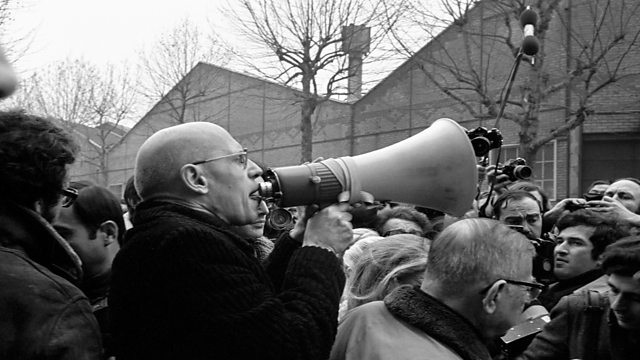
-
Against Marriage and more at Hay Festival Segovia

I’ll be speaking about Against Marriage and other social conventions at the Hay Festival Segovia in Spain, the twin of the Hay-on-Wye literary festival run in conjunction with the British Council.
Clare Chambers, Reader in Political Philosophy at the University of Cambridge, is the author of Against Marriage: An Egalitarian Defence of the Marriage-free State; Sex, Culture and Justice: The Limits of Choice; Teach Yourself Political Philosophy: A Complete Introduction; and numerous articles on feminist and liberal political philosophy. She is currently carrying out research for her latest project, entitled Intact: The Unmodified Body. During her visit to Segovia she will speak with Ludovic Assémat, Director of Arts at the British Council, about the social conventions by which we live, within the framework of the British Council’s It’s Time to Talk programme. Simultaneous translation from English to Spanish
Read more and book tickets here.
-
OUP Philosophy Festival reading list
 Two of my articles feature in the OUP Philosophy Festival 2017 reading list, making them available for free download.
Two of my articles feature in the OUP Philosophy Festival 2017 reading list, making them available for free download.You can find and read “The Marriage-Free State” and “Ideology and Normativity”, as well as many other excellent articles by other philosophers, here.
-
Gli Stati Generali on the “Me Too” movement
 I was interviewed by Valentina Saini for her piece “È L’ALBA DI UN’INTERNAZIONALE FEMMINISTA?” on the Italian news site Gli Stati Generali. You can read the piece, in Italian, here.
I was interviewed by Valentina Saini for her piece “È L’ALBA DI UN’INTERNAZIONALE FEMMINISTA?” on the Italian news site Gli Stati Generali. You can read the piece, in Italian, here.For those who don’t speak Italian I don’t have a translation of the full article, but here are the answers I gave to Valentina Saini’s questions.
VS: In many countries and regions of the world, sexual harassment in the form of a “pat” on a woman’s “butt”, for example, is seen as something innocent and harmless, nothing one should be especially offended by – many women think so too. Why is that? Is women’s body still something that does not belong exclusively to them – culturally speaking?
A (CC): Women and girls are taught from an early age that one of their most important roles is to be attractive, pleasing, submissive and helpful to others. This education comes from many sources: gendered differences in early upbringing, acceptable social roles for men and women, media portrayals of women that focus on their looks, role-models and stereotypes. It is not surprising in this context of gender inequality that some women internalise the role given to them, and think of their bodies as primarily existing to be appraised and used by others. That doesn’t make it acceptable.
Q (VS): The Me Too hashtag arose in the US and rapidly spread in many other parts of the world, meaning that sexual abuse and sexual harassment are a global phenomenon. Is it possible that even in so-called developed countries, sexual harassment in the workplace is subtly interpreted as “the price” women may have to pay to enter a once male-only institution, that is, paid work?A (CC): Sexual abuse and sexual harassment certainly are global. Women know this and have known it for a very long time. Women do not enter the workplace on equal grounds to men. They are multiply disadvantaged by many forms of sexism: sexual harassment, the gender pay gap, the incompatibility of work and family life, stereotyping and discriminatory behaviour. Gender inequality of all forms needs to be dismantled, and the Me Too movement is one important part of the global movement of women and feminists against sexism. -
Joint Session 2017
- all posts on feminism, all posts on social construction, articles, beauty, feminism, social construction
Ideology and Normativity
 This paper investigates the possibility of what Sally Haslanger calls ‘ideology critique’. It argues that ideology critique cannot rely on epistemological considerations alone but must be based on a normative political theory. Since ideological oppression is denied by those who suffer from it is it is not possible to identify privileged epistemological standpoints in advance.
This paper investigates the possibility of what Sally Haslanger calls ‘ideology critique’. It argues that ideology critique cannot rely on epistemological considerations alone but must be based on a normative political theory. Since ideological oppression is denied by those who suffer from it is it is not possible to identify privileged epistemological standpoints in advance.You can read the paper here and on the OUP Philosophy Festival Reading List here.
-
Ideology and Normativity
 This paper investigates the possibility of what Sally Haslanger calls “ideology critique.” It argues that ideology critique cannot rely on epistemological considerations alone but must be based on a normative political theory. Since ideological oppression is denied by those who suffer from it is it is not possible to identify privileged epistemological standpoints in advance.
This paper investigates the possibility of what Sally Haslanger calls “ideology critique.” It argues that ideology critique cannot rely on epistemological considerations alone but must be based on a normative political theory. Since ideological oppression is denied by those who suffer from it is it is not possible to identify privileged epistemological standpoints in advance. - all posts on feminism, all posts on social construction, all posts on the body and beauty, chapters, feminism, social construction, the body
Judith Butler’s Gender Trouble
In The Oxford Handbook of Classics in Contemporary Political Theory, edited by Jacob T. Levy (OUP, forthcoming).
This chapter provides a critical introduction to Judith Butler’s classic work Gender Trouble, including an analysis of the impact it has made on political theory.
The chapter is online first and you can read it here.
- all posts on culture and religion, all posts on feminism, all posts on marriage, all posts on social construction, media, read
3am magazine
 An interview with me, focusing on my work in Sex, Culture, and Justice. Read the interview here.
An interview with me, focusing on my work in Sex, Culture, and Justice. Read the interview here.Clare Chambers chews over the core philosophical issues of sex, culture and justice for liberal feminists, brooding on practices of physical modification, social construction’s role in negotiating claims of universalism and tolerance, Foucault and the panopticon, Bourdieu and habitus, Mackinnon’s critique of liberal feminism, taking violence against women seriously, Benhabib’s discourse ethics, how not to be a relativist, of what kind of universality is worth defending and of the state of academic philosophy and feminism. This is a voice from a war zone. Listen up!
- all posts on feminism, all posts on social construction, all posts on the body and beauty, listen, media
BBC Radio 4 “Woman’s Hour”
I made a live appearance on BBC Radio 4’s Woman’s Hour, discussing ideas from Sex, Culture, and Justice in the context of a debate on cosmetic surgery and the concept of ‘normal’, on 31st July 2012. You can listen to the debate right here via the sound file below. The segment begins at 33m, I am on at 37m.
- all posts on culture and religion, all posts on feminism, all posts on liberalism, all posts on social construction, all posts on the body and beauty, beauty, feminism, liberalism, multiculturalism and religion, Sex, Culture, and Justice, social construction, the body
Sex, Culture, and Justice: The Limits of Choice
Sex, Culture, and Justice: The Limits of Choice was published in hardback and paperback by Penn State University Press in 2008. An e-book is also available. You can buy all versions here.
Autonomy is fundamental to liberalism. But autonomous individuals often choose to do things that harm themselves or undermine their equality. In particular, women often choose to participate in practices of sexual inequality-cosmetic surgery, gendered patterns of work and childcare, makeup, restrictive clothing, or the sexual subordination required by membership in certain religious groups. In this book, Clare Chambers argues that this predicament poses a fundamental challenge to many existing liberal and multicultural theories that dominate contemporary political philosophy. Chambers argues that a theory of justice cannot ignore the influence of culture and the role it plays in shaping choices. If cultures shape choices, it is problematic to use those choices as the measure of the justice of the culture. Drawing upon feminist critiques of gender inequality and poststructuralist theories of social construction, she argues that we should accept some of the multicultural claims about the importance of culture in shaping our actions and identities, but that we should reach the opposite normative conclusion to that of multiculturalists and many liberals. Rather than using the idea of social construction to justify cultural respect or protection, we should use it to ground a critical stance toward cultural norms. The book presents radical proposals for state action to promote sexual and cultural justice.
Amazon UK: http://www.amazon.co.uk/Sex-Culture-Justice-Limits-ebook/dp/B001UE6M1G/
Amazon US: http://www.amazon.com/Sex-Culture-Justice-Limits-ebook/dp/B001UE6M1G/
Reviews
“[A]n interesting, important, wide-ranging and well-argued book that contains a controversial proposal that will, no doubt, be widely debated.”
—Times Higher Education“[A]n important book. … Very few first-rate analytical thinkers … engage with social theorists: Chambers is a notable exception, and if only for that reason, her contribution should serve as a model for any endeavour of this kind. … Moreover, its strength lies not merely in the author’s mastery of two disparate intellectual traditions, but also in its cogent and provocative defence of a number of proposals.“
—Philosophy“[E]xtremely successful. … Testament to her scholarly rigour, Chambers skilfully avoids alienating either side of the academic divide [between analytical and continental philosophy]; achieving her stated aim, she undermines the foundations upon which such divides are rooted. … This opportune and tightly argued work reveals the extent to which equality and justice cannot be guaranteed by a political liberalism which venerates autonomy to the exclusion of other important values. Setting itself apart from other work in its field, this book forms, albeit on its own terms, part of the solution.”
—Feminist Theory“Chambers’ work makes a highly valuable contribution to contemporary philosophical debates. … Chambers’ work represents a great advance in attempting to forge a path between two positions which are so often considered to be diametrically opposed. The project … is a vital one. … [T]he value of the theoretical contribution, both to liberal and feminist philosophy, is indisputable.”
—Res Publica“Her interwoven arguments … are complex, meticulous and inventive. … [T]here is real potential here for this book to alter mainstream liberal thinking.”
—Feminist Review“An incisive, well-written book with a sustained, original argument.”
—Ruth Abbey, University of Notre Dame“The book contributes significantly to the literature of liberalism, autonomy, and feminism.”
—Ann Cudd, University of Kansas“Chambers’ refreshing approach has the potential to expand the scope of conventional liberal theory by showing how liberals can (and should) directly meet the challenge of postmodern approaches and by demonstrating that feminist contributions are the well from which most innovations in liberalism are drawn.”
—Avigail Eisenberg, University of Victoria -
Masculine domination, radical feminism and change
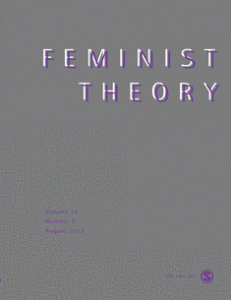 Feminist Theory Vol. 6 No. 3 (December 2005).
Feminist Theory Vol. 6 No. 3 (December 2005).This article argues that the feminist turn to Pierre Bourdieu in an attempt to conceptualise the tension between freedom and agency is helpful, but is made more so when the similarities between the work of Bourdieu and radical feminist Catharine MacKinnon are noticed. MacKinnon’s strategies for change, particularly consciousness-raising, are well suited to a Bourdieuean approach.
You can read the paper here.
- all posts on culture and religion, all posts on feminism, all posts on liberalism, all posts on social construction, all posts on the body and beauty, articles, beauty, feminism, the body
Are breast implants better than female genital mutilation? Autonomy, gender equality and Nussbaum’s political liberalism
 Critical Review of International Social and Political Philosophy (CRISPP) Vol. 7 No. 3 (Autumn 2004).
Critical Review of International Social and Political Philosophy (CRISPP) Vol. 7 No. 3 (Autumn 2004).This paper outlines two forms of autonomy, and argues that political liberals such as Martha Nussbaum wrongly prioritise second-order autonomy. As a result, they cannot provide adequate criticism of unjust social norms. The two cases of breast implants and female genital mutilation are compared to illustrate this point.
